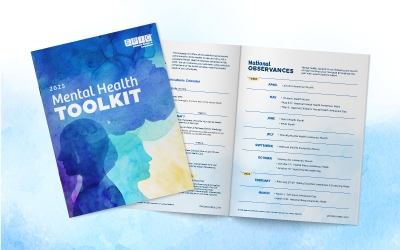In August of last year, I wrote about the impact this new COVID-19 world would have on those struggling with drug addiction. With social distancing restrictions and shutdowns of many mental health and substance abuse programs, it was likely to expect that the Centers for Disease Control and Prevention (CDC) would see an influx of drug-related deaths for the year 2020.
In December 2020, the CDC released preliminary data and the findings are dismal. With data ending in May 2020, they reported over 81,000 overdose deaths in the U.S. – the highest number of overdose deaths ever recorded in a 12-month period – and this data overlaps only three months into the pandemic. The primary driver for these overdoses were synthetic opioids (primarily fentanyl) which increased 38.4% from the prior 12-month period.
Overdose deaths involving cocaine also increased by 26.5%, highly correlated to a co-use or contamination of cocaine with illicitly manufactured fentanyl or heroin. Overdose deaths involving psychostimulants such as methamphetamine increased 34.8% and now exceed the number of cocaine-involved deaths.
Viewpoints from Briana Loff
As the world starts to open up again, it will be imperative to reopen outpatient programs.
And as more data comes from the CDC, I fear we will see record-high overdose deaths in a given year. With a lack of income stability, limited outreach programs and limitation of support groups for those struggling with drug addiction, there’s no doubt in my mind that we will continue to see these numbers climb.
But what can we do in such a limited world?
Everyone has a role to play. Make sure you understand the risks of opioids, learn about naloxone or find the right care.
The most important action is to learn about surveillance and prevention efforts – this extends to the workplace with access to mental health and substance abuse providers.
I hope that in the coming months, as the world goes into the new normal, this subgroup of our population doesn’t get left behind.
See more of our mental health coverage on Viewpoints:
The COVID-19 Pandemic Didn’t Create a Mental Health Crisis, It Exposed It
“Mental Health” Focus – Trend or Here to Stay?
Why Now Is the Time to Address Your Employees’ Mental Health
Are We Losing Our Heads When It Comes to Mental Health Coverage?
EPIC offers these opinions for general information only. EPIC does not intend this material to be, nor may any person receiving this information construe or rely on this material as, tax or legal advice. The matters addressed in this article and any related discussions or correspondence should be reviewed and discussed with legal counsel prior to acting or relying on these materials.
Related Content
Products
Employee Benefits Consulting
Our dedicated benefits team is focused on delivering better outcomes – to both your benefits program and ...
Products
Wellbeing & Health Management
Our consultants help you create a strategy around health management that will impact your culture and your ...
Products
Pharmacy Solutions
Our Pharmacy Consulting Practice helps companies navigate the unique complexities of expertly managing the ...



